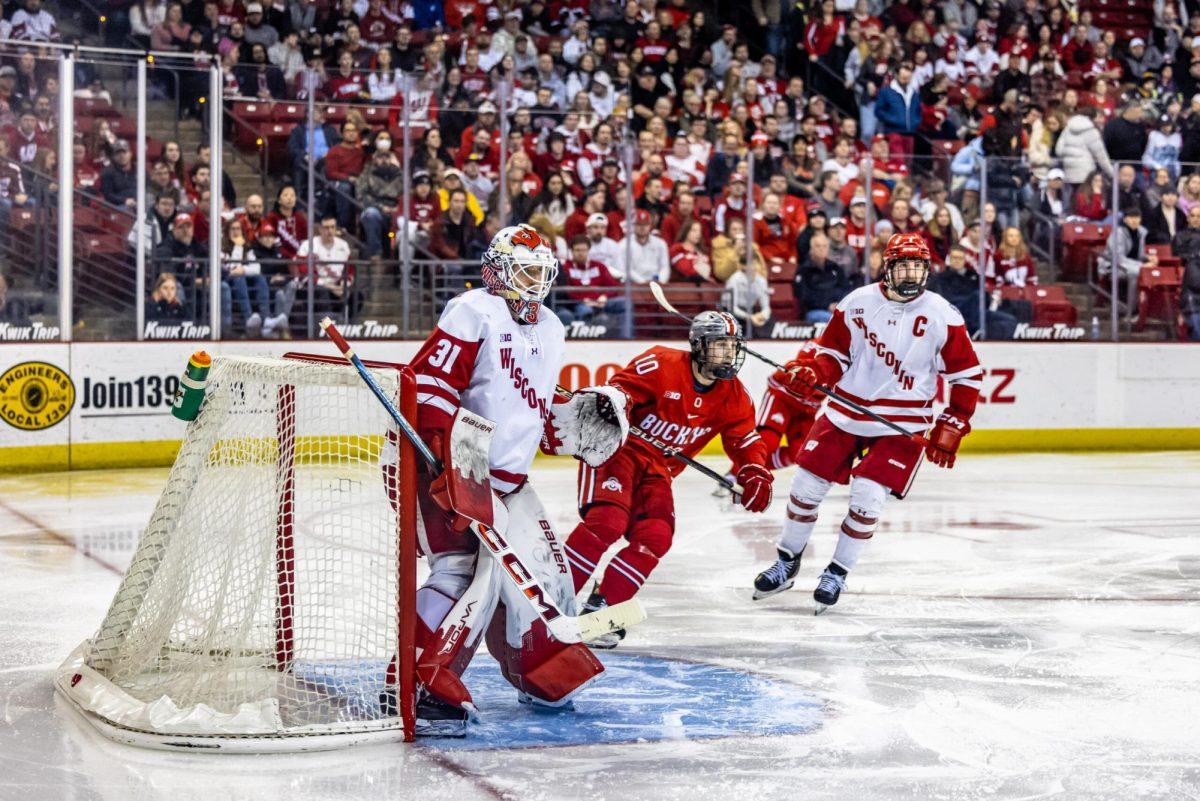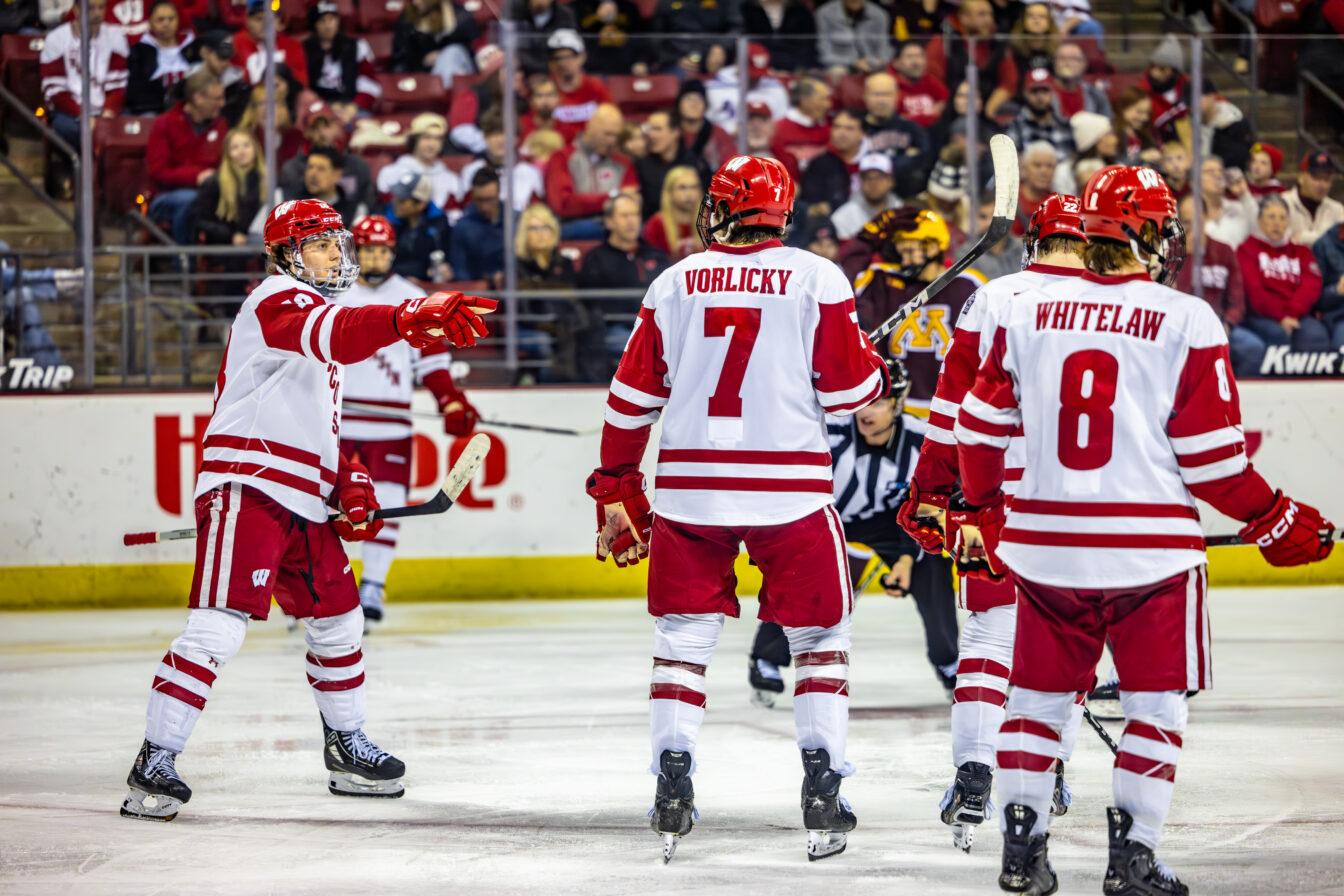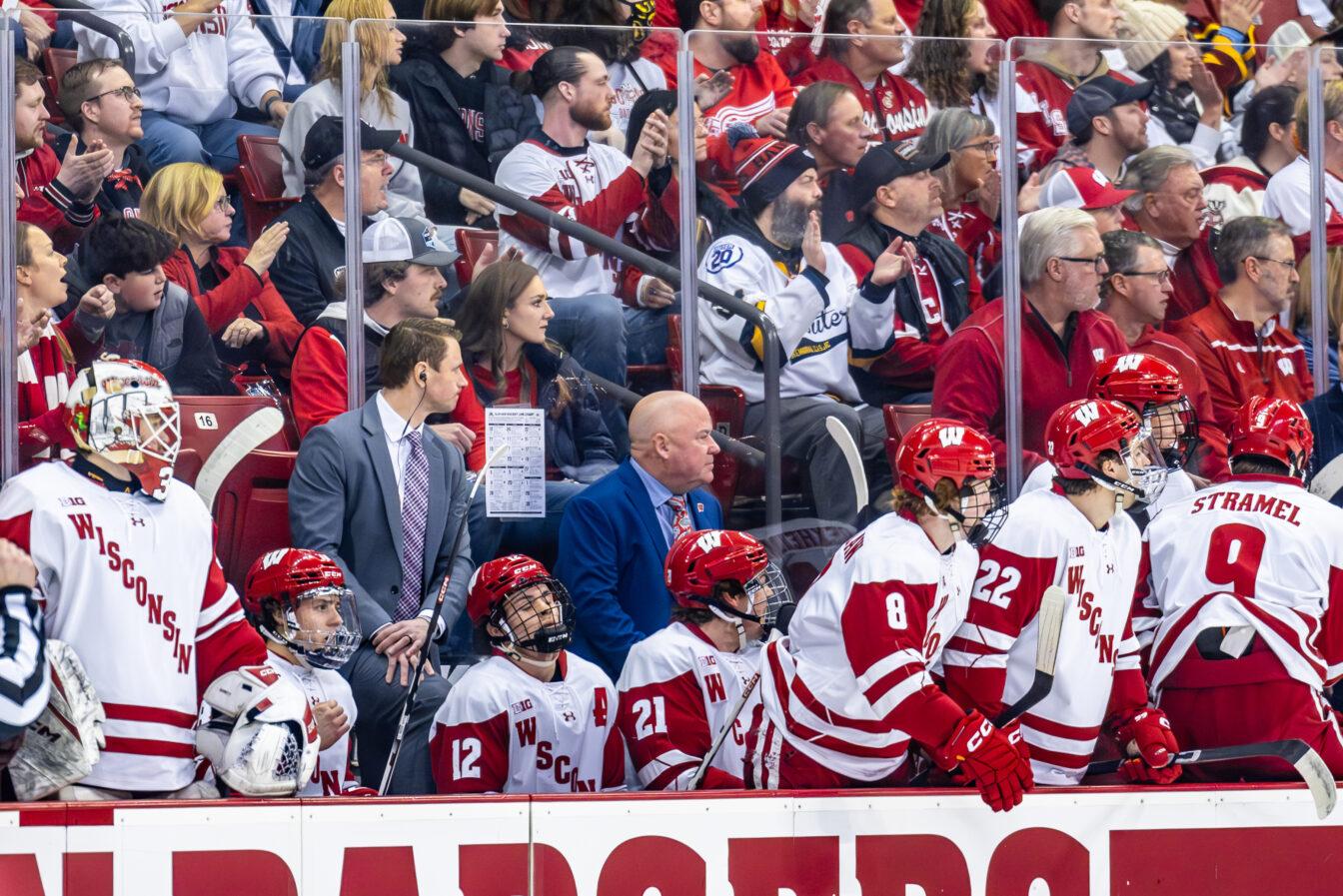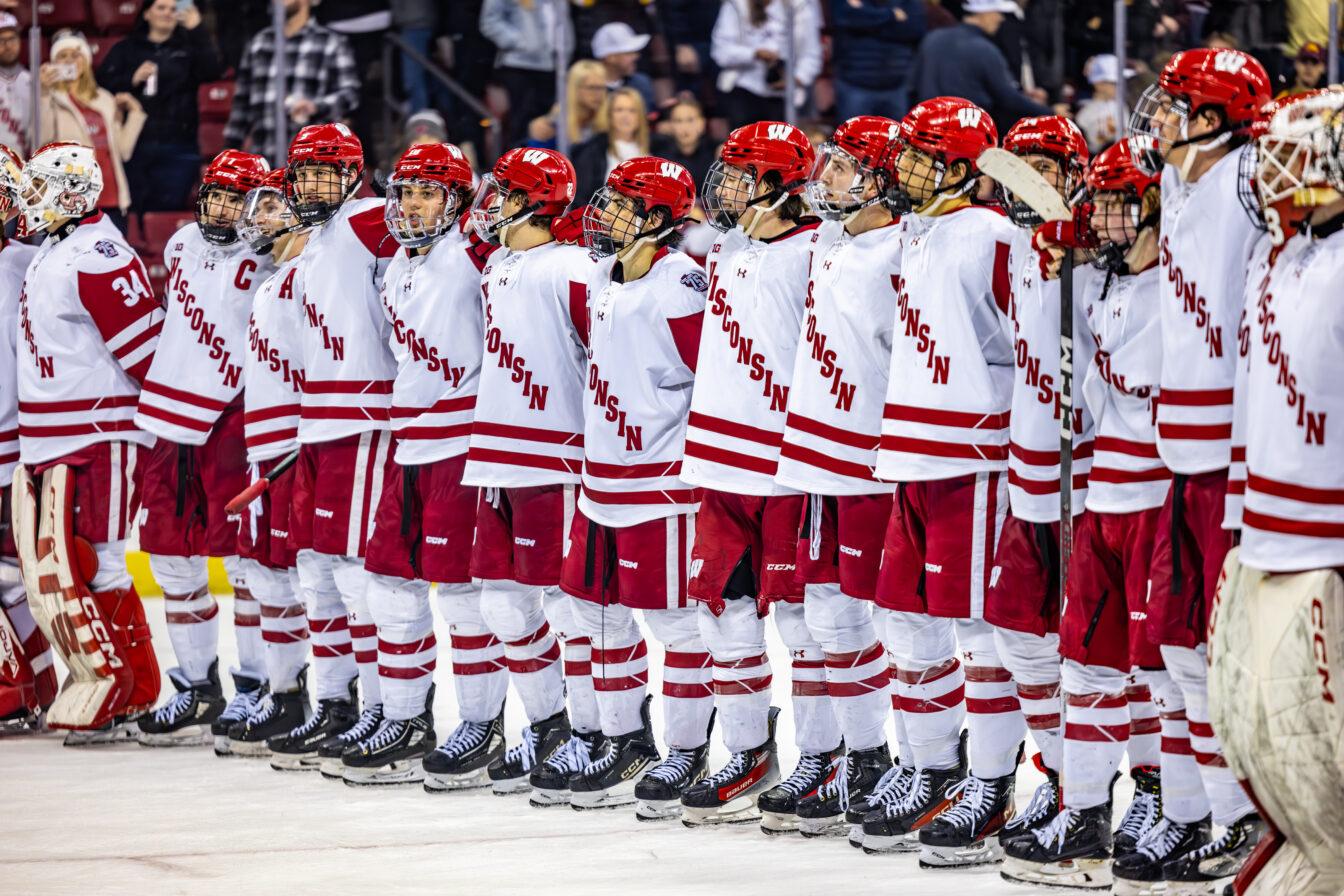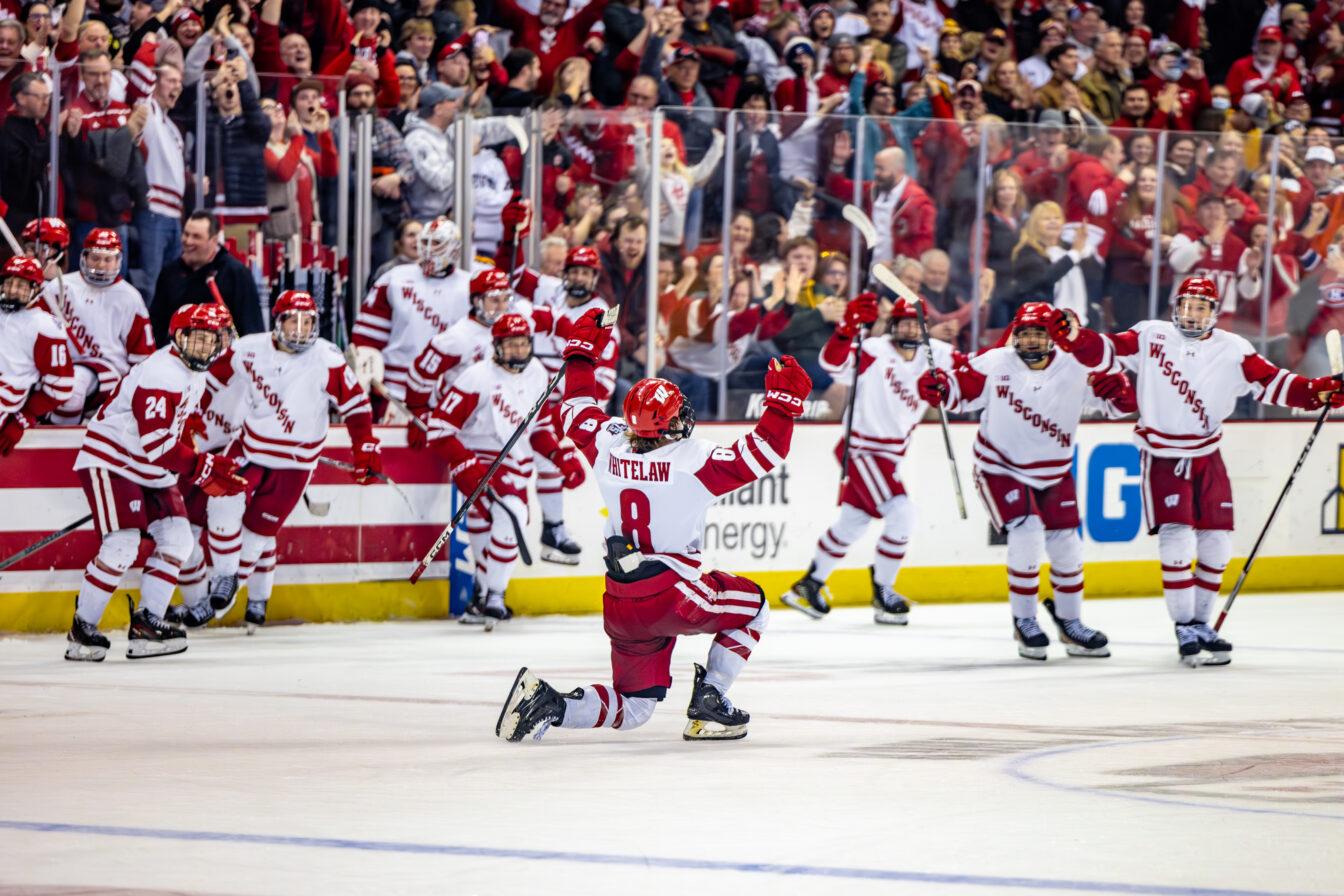To say the Badgers are struggling may be an understatement to describe the power play of the Wisconsin men’s hockey team, and historically, it is an uncommon occurrence.
Each of the last four seasons, the Badgers’ conversion percentage on power plays increased, from 14.9 percent in 2006 to 21.6 percent last year. To begin play this year, the Badgers are 3-for-26 (.115), a key factor in the team’s 1-3 record.
Despite the anemic start, Wisconsin isn’t yet allowing the power play to become a source of panic this early in the season, in part because the young team is still learning to play together.
“The percentage on the power play is not too great of a concern for me because, yeah, we have Justin [Shultz] back and [Mark Zengerle] back, but [Tyler Barnes] hasn’t played with [Zengerle] on the power play, and we’re trying to get [Michael Mersch] in there,” head coach Mike Eaves said. “[Mersch] is new on that group and now we might even try [Joseph LaBate] there. We are just trying to find the right mix, and we’re trying to find a second power play, too. We have a whole bunch of guys going on there, so [the power play is] going to get better as we go along.”
Part of the overall problem for the Badgers seems to be their inability to get shots when they have a numbers advantage on the ice. In their 26 power play opportunities, Wisconsin has only been able to muster 28 shots on goal.
“I think we need to get some more shots on net, and I think we really need to work on us getting the puck in the zone and setting it up,” junior defenseman Justin Schultz said, mentioning he would like to see four or five shots per power play.
One bright spot on the Wisconsin power play has been sophomore forward Tyler Barnes. Of the three power play goals the Badgers have scored, Barnes has two, including the first of three goals Wisconsin needed to overcome a 2-0 deficit against Northern Michigan on Oct. 18 in Wisconsin’s only victory of the season.
“The goal on Friday night [against Michigan Tech], he made the right read like he is the quarterback with the puck; he made the right read and brought it to the net,” Eaves said. “The other one was a shot, so it’s been different things. But he should be scoring for us. Part of his responsibility on our team is putting the puck in the net, and so far he is doing it.”
UW is pleased with the number of opportunities it has gotten but will need to continue to be aggressive rather than worrying about creating even more scoring chances.
“One of the things that is little-known about power plays is that it’s not the opposing team that really causes the penalties, it’s your team that earns them,” Barnes said. “If you’re out there and you’re not playing hard, nobody is going to be taking you down. But if you have guys going to the net hard and going to the corners hard, you are going to get taken down and earn the penalties. That is something you can always improve on, but I think it is more important to capitalize on the opportunities that we have.”
On the defensive end of the ice, the penalty kill has not been extremely sharp either, allowing four goals in 15 opposing power plays, but the defense has at least done a decent job of limiting the number of chances.
Wisconsin continues to employ a two-goalie rotation, Landon Peterson in game ones and Joel Rumpel in game twos, and although there is a disparity between power play goals allowed (Peterson 0, Rumpel 4), Eaves has been pleased with the play of both goaltenders.
“Those are the types of goals being scored, so [the number of power play goals allowed by each] is a non-factor,” Eaves said. “Matter of fact, if they are power play goals, they have the advantage so they probably should be getting some of those. Both goaltenders have played well.”
Peterson is happy with his performance in goal so far this year and hopes the chemistry he and his teammates are building will eventually lead to more wins for the Badgers.
“I think everybody that has been in the penalty kill in front of me has been doing their part and doing a great job,” Peterson said. “We have had a lot of success since I have been out there, haven’t given up one goal yet. Everyone is doing their part blocking shots, and we’re being successful together. … So far, I haven’t gotten [a win] yet, but I’m working hard for one.”



